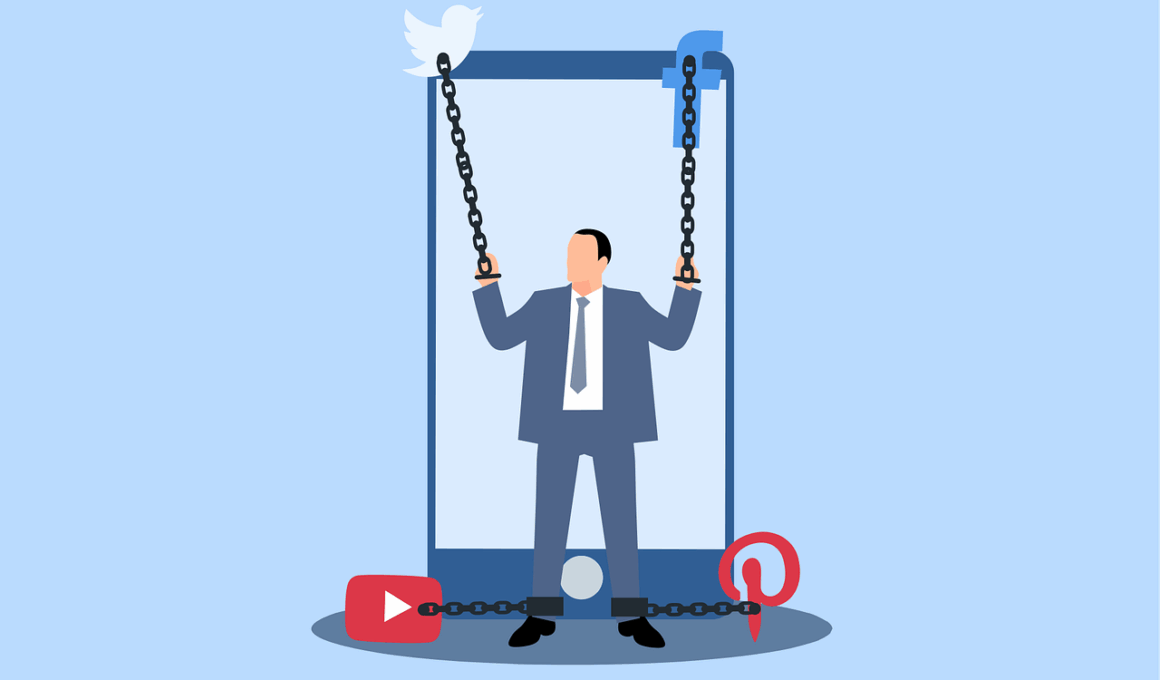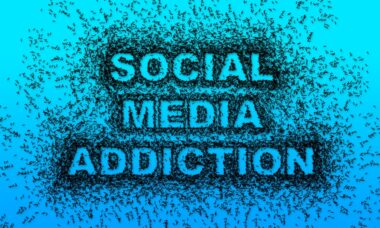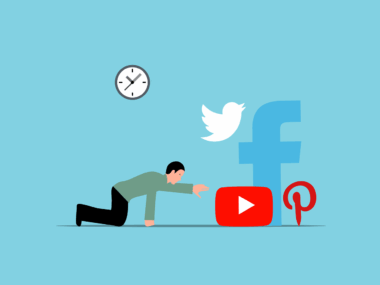Mobile Social Media Use Among Teens: Psychological Implications
The advent of mobile social media has transformed how teenagers interact with each other and the world. These platforms have become essential for communication, allowing quick messages and image sharing. While they present opportunities for positive social interaction, they also pose risks to mental well-being. Studies indicate that extensive use of social media correlates with issues like anxiety and depression among adolescents. However, moderation is key; limited use can foster connection and support. Parental guidance and awareness can help mitigate these effects. It’s crucial to monitor usage patterns and understand the implications of social media behavior. Awareness of mental health is vital in today’s environment and must include discussing online conduct. Encouraging teens to find a balance between online and offline interactions can promote healthier emotional states. Empowering youth with knowledge about social media’s effects prepares them to navigate challenges. Also, integrating discussions about digital footprints and the permanence of online actions is essential. Engaging in this subject collectively leads to better understanding, allowing teens to reap the benefits while mitigating potential harms.
Teens today are constantly connected through mobile devices, impacting their mental health deeply. Social media can offer a sense of belonging, which is crucial during these formative years. However, the pressure to present a perfect life can lead to detrimental self-esteem issues. Many teens compare themselves to unrealistic standards set by influencers, which can enhance feelings of inadequacy. Online bullying is also prevalent, causing significant emotional distress for those targeted. Adolescents may feel isolated, fearing revealing their true selves. The compulsive need to check notifications further fuels anxiety. Parents play a critical role in guiding their children in understanding social dynamics. Open discussions about emotions and online experiences can foster resilience. Additionally, promoting offline activities can provide balance and reduce reliance on virtual validation for self-worth. Encouraging face-to-face friendships helps create a supportive environment. It is also essential for teens to cultivate hobbies outside of social media. Structuring time spent online can lead to healthier habits. Schools should incorporate mental health education, addressing technology’s usage effects to equip students with necessary coping strategies. This way, awareness will increase, and students will learn to use technology positively.
The Positive Side of Social Media
Despite the risks associated with mobile social media use, there are also significant benefits for teens. Social networks provide a platform for self-expression, enabling adolescents to explore their identities and connect with like-minded individuals. This connectivity can enhance social skills and create a sense of community, especially for those who feel marginalized in traditional settings. Social media can also be a source of information and support, offering resources for mental health issues. Online support groups or forums can empower teens to share experiences and learn from each other. Furthermore, they can aid in raising awareness about social issues, reinforcing a sense of activism among the youth. By participating in online movements, teens can feel a sense of purpose and belonging. Additionally, social media encourages creativity and innovation, allowing users to showcase their talents. However, it is crucial for teens to navigate these platforms mindfully. Using features such as privacy settings, they can manage their digital presence more effectively. Engaging with positive content is essential, as it can influence mental health outcomes positively. Encouraging teens to follow accounts that inspire and uplift can create a more favorable online atmosphere.
As mobile social media continues to evolve, understanding its implications on adolescent mental health remains critical. Navigating this dynamic landscape requires vigilance from parents, educators, and mental health professionals. Ongoing research is essential to comprehend the long-term effects of social media use on psychological well-being. Recent studies have highlighted a potential link between excessive screen time and increased rates of anxiety among youth. Thus, monitoring social media habits becomes vital for identifying patterns that may indicate distress. Encouraging active engagement rather than passive consumption can help foster healthier relationships with technology. Involving teens in discussions about their online experiences creates a platform for open communication. By doing this, parents and educators can gain insights into social media’s impact on their lives. Additionally, they can guide young users in developing critical thinking skills about their digital interactions. Promoting resilience through education and awareness empowers teens to confront the challenges that arise. It’s also beneficial to create environments where seeking help for mental health issues is normalized. Building safe spaces for dialogue cultivates understanding and diminishes stigmas surrounding mental health. Community programs aiming to enhance digital literacy can also aid in navigating these complexities.
Recommendations for Healthy Social Media Usage
To foster healthier social media habits among teens, it is essential to establish clear guidelines and foster understanding. Parents and guardians can initiate conversations about responsible usage and the content they engage with. Setting limits on screen time can ensure a balanced approach, ensuring that online interactions do not overshadow real-life experiences. Implementing tech-free zones during family time promotes bonding and encourages deeper connections. Establishing these pauses from screens can greatly enhance emotional health. Teens can also benefit from learning digital etiquette, understanding the impact their online behavior can have on themselves and others. Schools can help by integrating social media literacy into the curriculum, equipping students to make informed decisions. Programs focusing on empathy and respect in online interactions can build a more supportive community. Additionally, encouraging teens to take breaks from their devices can be beneficial. Developing mindfulness practices around technology use helps promote a healthy attitude towards social media. Positive reinforcement for engaging in offline activities can further solidify these habits. Resources such as counseling services should also be made available, allowing teens to seek support when needed. This multi-faceted approach can lead to healthier digital landscapes.
Recognizing the signs of mental health issues related to social media use is vital for effective intervention. Parents should be vigilant regarding behavioral changes in their teens that may signal distress. Signs such as mood swings, withdrawal from activities, or excessive agitation when not on devices can indicate underlying issues. Encouraging teens to express how social media affects their feelings can facilitate understanding. Open communication is crucial in ensuring that adolescents feel comfortable discussing their struggles without fear of judgment. Providing reassuring support can instill a sense of safety, paving the way for healthy coping mechanisms. Utilizing therapeutic sessions focusing on digital interactions can address specific challenges teens face. Peer support groups can also encourage sharing experiences and strategies to cope. Schools should promote comprehensive mental health programs focusing on technology’s dual nature. This approach raises awareness and normalizes discussions about mental well-being within educational settings. Engaging with trained professionals specializing in adolescent psychology can provide important resources for both parents and teens. Together, working collaboratively can create a supportive atmosphere. By fostering understanding, the community can promote resilience, ensuring that social media serves to enrich rather than hinder mental health.
Conclusion
In conclusion, the impact of mobile social media on teen mental health is profound and multifaceted. While it presents many challenges, recognizing and understanding its implications is essential in navigating these waters. Engaging in open discussions about technology and its effects can help equip adolescents with necessary skills. Promoting awareness regarding online behaviors and their consequences is crucial. Encouraging teens to practice moderation while allowing for creative expression is equally important. Parents, educators, and mental health professionals must collaborate in creating environments that foster healthy digital habits. Balancing online interactions with real-life experiences will likely improve mental health outcomes. Communities that prioritize education around social media usage equip youth to navigate challenges thoughtfully. Additionally, emphasizing the importance of empathy and respectful interactions online contributes to improved social dynamics. Supporting teens in seeking help when needed and normalizing discussions about mental health forms a crucial element of this approach. Ongoing research into these issues will further expand understanding, informing better practices and policies. Ultimately, navigating mobile social media requires a collective effort to ensure its benefits enrich adolescent lives while minimizing its risks, allowing teens to thrive.





